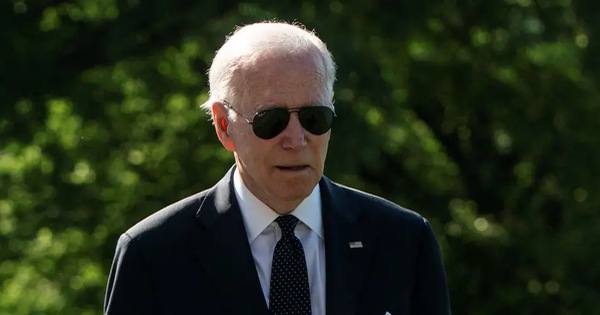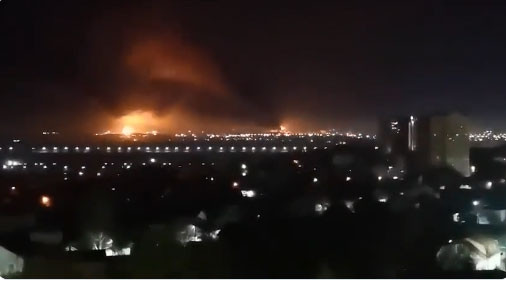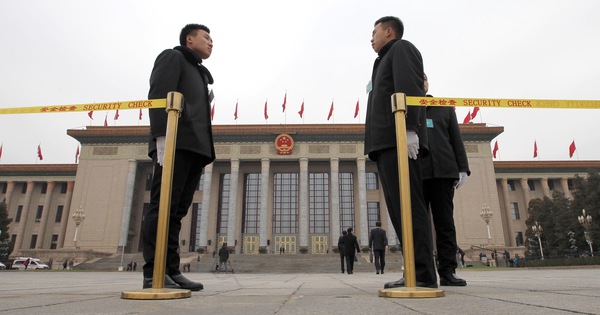America in ‘war’ with China in the South Pacific
After 80 years since the naval battle of the Coral Sea in May 1942, which played a pivotal role in the Pacific theater of World War II, the South Pacific region is now facing a new competition for influence between the United States and the United States. ally first China is rising.
Yesterday (April 24), ABC Radio quoted Australian Prime Minister Scott Morrison announced China’s base construction military in the Solomon Islands would be a “red line” for Australia and the US. Prime Minister Morrison’s statement shows the tension in the competition for influence between the US and its allies with China in the Pacific islands.
China’s competition
After World War II, from being enemies, the US and Japan gradually became important allies, and at the same time worked with Australia and New Zealand to build influence in the island nations in the South Pacific. Before that, this was an area where the US, Japan and Australia all had a lot of influence.
 |
The US Navy has a regular presence in the South Pacific AFP |
Since the end of World War II, all four countries have been considered as longtime and influential partners in the island nations in this region. Therefore, for decades, the South Pacific island nations have been seen as the “backyard” of the US and its allies in the region.
However, China has emerged in recent years as a competitive force for influence in this region through financial aid and investment. In April 2018, the newspaper The Sydney Morning Herald reported that another South Pacific island nation, Vanuatu, has allowed China to build a military base there.
By 2019, the magazine The Australia Financial Review reported that the Solomon Islands had signed an agreement with a Chinese corporation, China Sam, to develop Tulagi Island. The term of the agreement is said to be up to 75 years. Located in the central Solomons, Tulagi Island with an area of about 2.8 square kilometers will receive investment from China Sam in many fields such as trade, infrastructure, agriculture, fishery… Besides, the island Tulagi is considered to have great potential to develop a deep-water port, so it can pave the way for China to build a military base in the Solomons, contributing to the formation of a new base for Beijing in the South Pacific. . This concern is reinforced by China Sam’s close relationship with the government China.
At the time, a spokesman for the Australian Department of Foreign Affairs and Trade said that the establishment of a foreign military base in the South Pacific island nations was “concerning”. Commenting on China’s lease of Solomon’s islands, Mr. Peter Jennings, Director of the Institute Policy Australia strategy, asserting: “It would be wrong to consider this as mere trade”.
Until recently, China and Solomon signed a security agreement that, according to leaked information, could allow China to set up military facilities in Solomon. Both Vanuatu and Solomon are on the maritime route connecting the US with Australia. If China develops military bases in this area, China can monitor the coordinated moves between the navies of the US and Australia.
 |
The islands of the South Pacific have an important position TL |
Washington’s “strike”
Therefore, in recent days, Australia, along with New Zealand, the US and Japan have voiced their reaction to the agreement between China and Solomon. The climax was the statement about the “red line” that Prime Minister Morrison made yesterday (April 24).
So far, the US and its allies have only issued warnings and tried to mobilize Solomon. According to a notice from the White House, on April 22, a high-ranking US delegation went to Solomon to meet local leaders. In the working content, the two sides discussed about the security agreement just signed between Solomon and China. Thereby, Washington noted that there are potential regional security implications of the agreement, and warned that if China promotes its military presence in the Solomons, the US side will respond accordingly.
Before arriving in the Solomons, the American delegation stopped in Hawaii and met with high-ranking officials from Australia, Japan and New Zealand. The US delegation also traveled to Fiji, Papua New Guinea to meet with local leaders and partners in the region. During the meetings, the US side reaffirmed that it would seek to deepen its long-term relationship with the Pacific island nations, and take concrete actions to promote the Indo-Pacific strategy. free and open. This is Washington’s strategy to deal with China’s rise in the region.
In fact, Washington did not “wait for the water to reach its feet” before taking action. Currently, the US is promoting the process of renewing security agreements with three island nations in this region, the Federated States of Micronesia, the Marshall Islands and Palau, which are due to expire in 2023 and 2024. Under the agreement, the military The United States has exclusive access to the airspace and waters of these three countries. In return, the three Pacific island nations will receive financial aid from the US. When successfully renewing these agreements, Washington can strengthen its military power in this region.
In addition, from September 2021, the US, Australia and the UK reached an AUKUS cooperation agreement, which includes Washington and London helping Canberra develop a nuclear-powered submarine fleet. This agreement is assessed to help Australia strengthen its naval capabilities in the region. Before Canberra owns a nuclear submarine, according to observers, the US will deploy nuclear submarines stationed in Australia. It is one of many moves to strengthen the US military deterrence capacity in the region, in addition to promoting cooperation in the security quartet (including the US, Japan, Australia and India) to pursue the War. Free and Open Indo-Pacific Strategy.
at Blogtuan.info – Source: thanhnien.vn – Read the original article here



